Why Shabbat? Why Now?
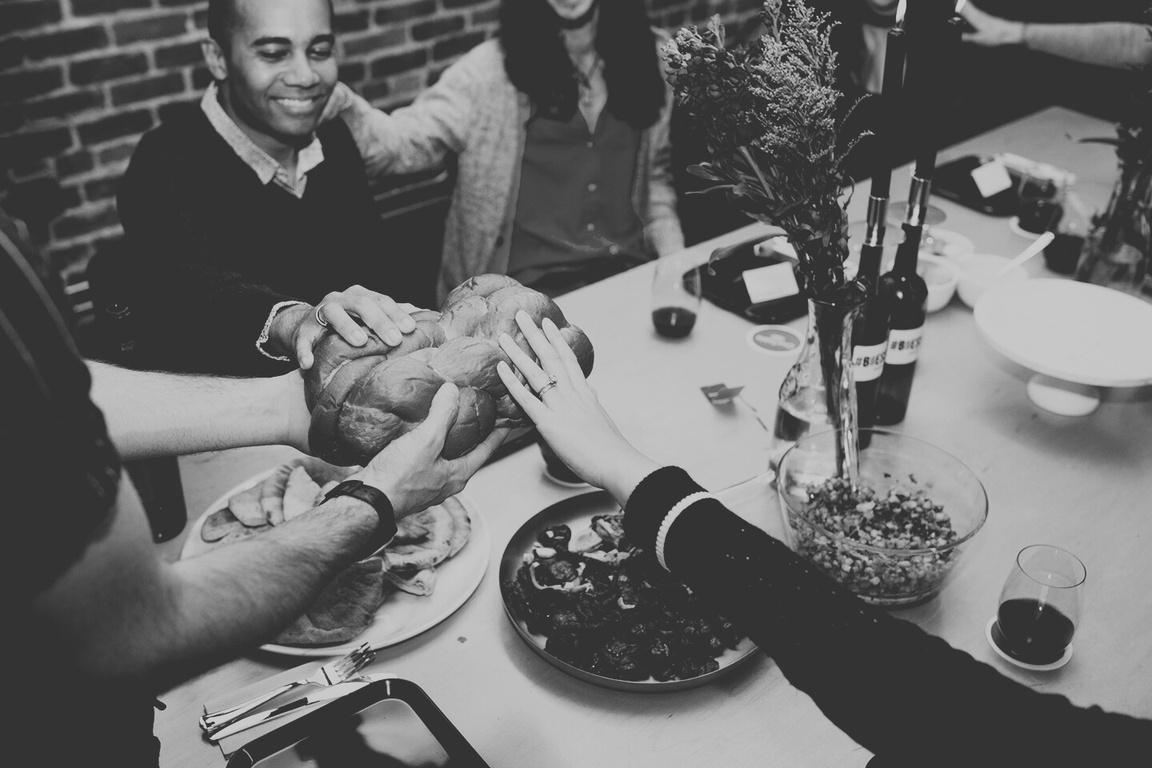
After October 7, the world has needed Shabbat more than ever.
Shabbat is here, week after week, as our constant reminder of all we need reminding of: to slow down, to engage across differences, to seek out comfort, to express ourselves, to open ourselves up, to provide ourselves a respite, to connect to others and ourselves across time. We hope that this resource will serve as a reminder of all of these things and as a guide to deepening your experience.
Welcome
"A song for Shabbat… the host like a date, thrives like a cedar Psalm 92
"Hospitality toward guests is g receiving the Divine Presence…
Babylonian Talmud Shabba
Head

The ritual of welcoming guests, Hachnasat Orchim, is one of the most fundamental Jewish principles, and one of OneTable’s Core Values! Radical hospitality, welcoming guests or graciously being welcomed, honors the essential value in all human beings (kavod ha'briot) Through welcoming, Shabbat hosts and guests create an elevated environment where all can feel comfortable in the shared space. During this difficult time, welcoming is one of the most core steps we can take so Shabbat can be an antidote
Hands
So much of creating a welcoming space has to do with the senses. Is your home an inviting temperature and a warm light? Is there upbeat music or the sounds of conversation? Smell is one of our most acute senses and is tied to feelings of comfort and well-being.
Burning incense is a ritual that traces its roots to the story of Exodus and features prominently in ancient Israelite practices. Though these are no longer practiced, you can invoke your home as your sacred space by burning incense or other ancestral Jewish plants such as cedar or rue. The prayer for smelling spices from Havdalah (the ceremony that ends Shabbat) has been included here if you want to ritualize this moment before you welcome guests into your home.
,
Baruch ata Adonai, Eloheinu Melekh ha-olam, borei minei v’samim.
Blessed are You, Adonai our God, Ruler of the universe, Creator of man kinds of spices
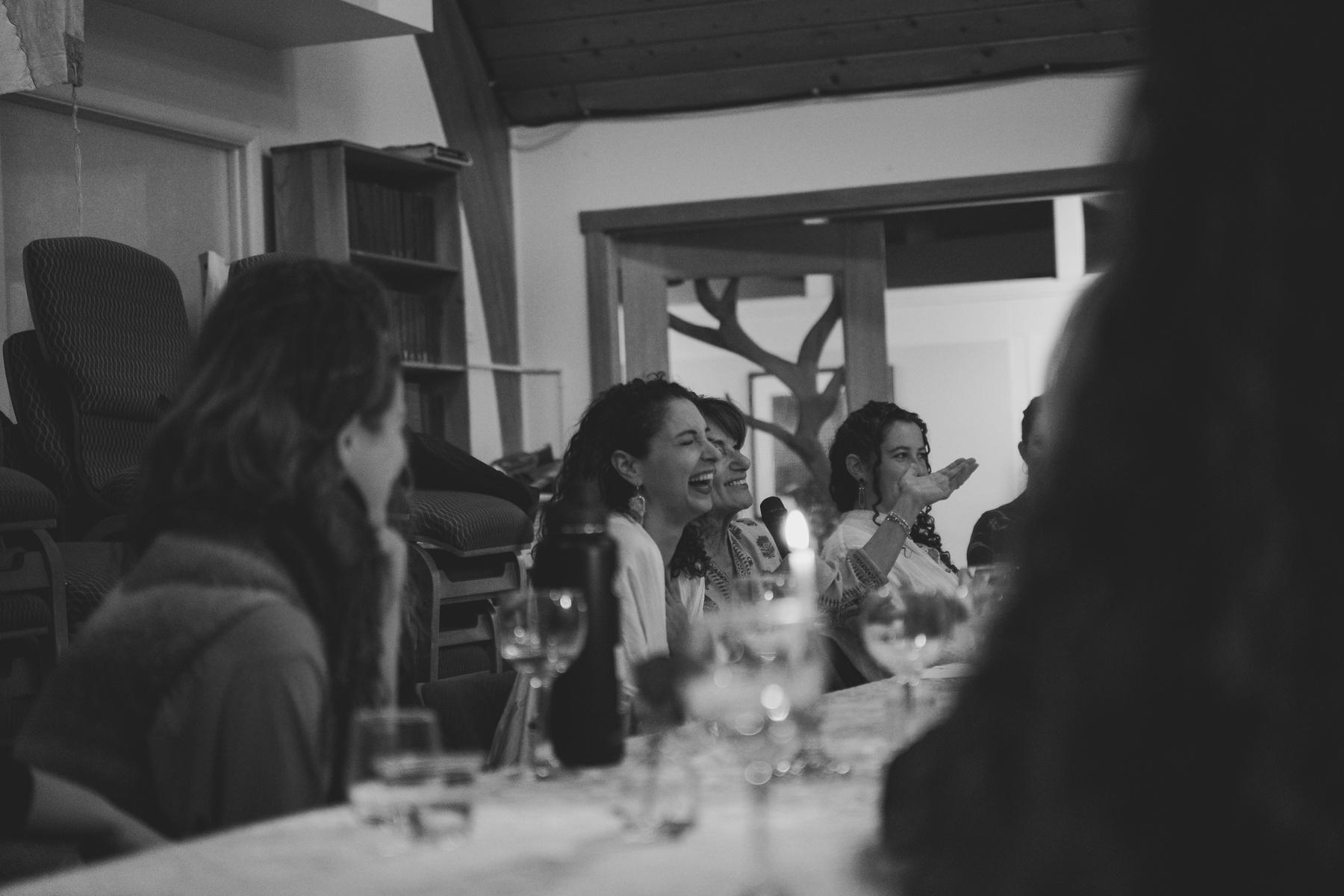

What value do Jewish practices offer you in the process of inviting guests into your home? Do you host dinner parties outside of Shabbat? If so, how do the Shabbat rituals change the experience?


How do you think the rituals of Shabbat can create a space conducive to resilience in difficult times?
Do Jewish rituals and traditions feel like they connect you through time to your ancestors?
םלועה ךלמ וניהלא יי התא ךורב םימשב ינימ ארוב
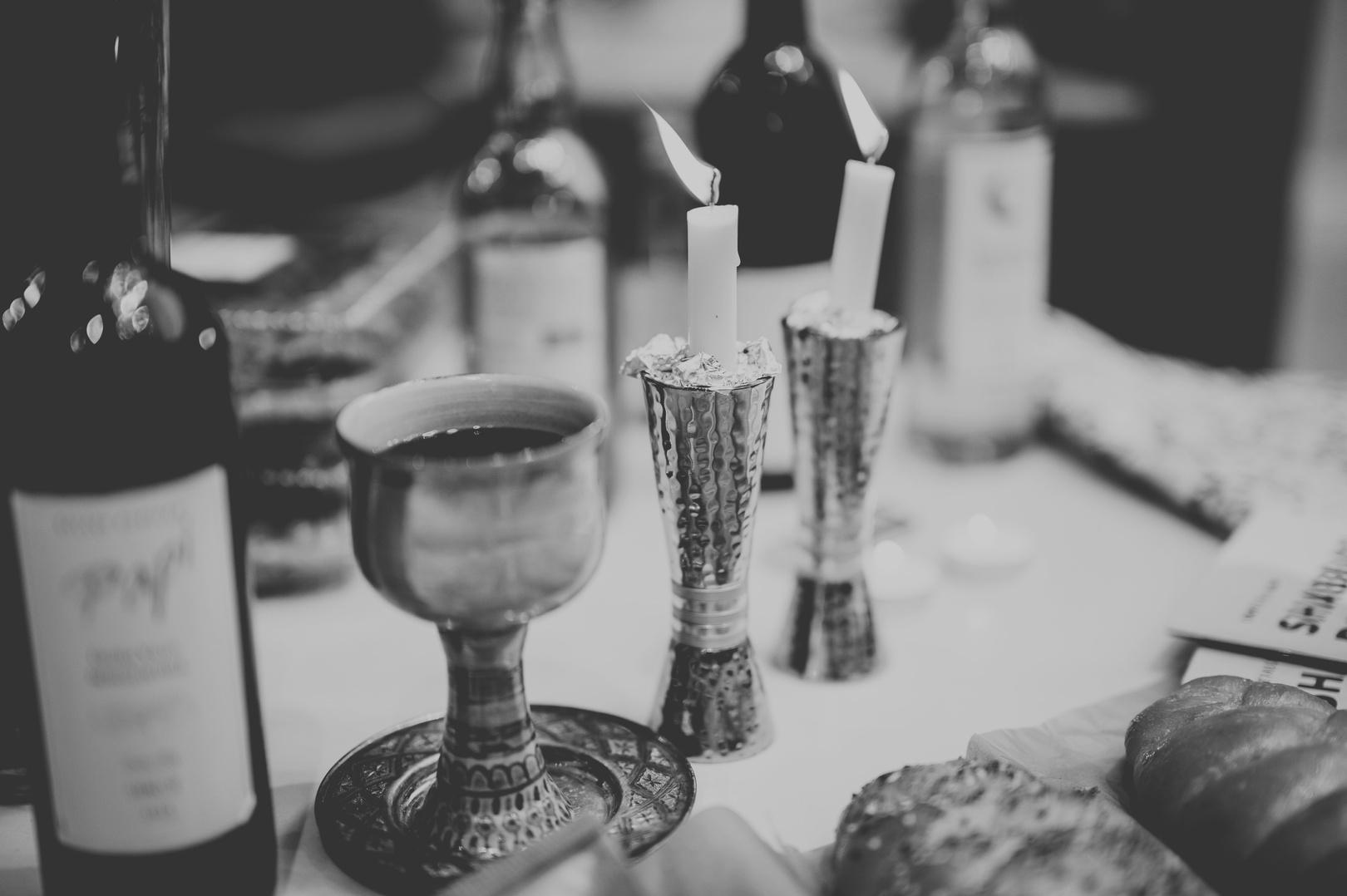
Head
Lighting candles is an opportunity to bring the light in, into your most sacred and core space. It is also an opportunity to offer light into dark spaces both metaphorical and physical In Jewish tradition, we light candles at times of joy such as Shabbat and Hanukkah, but we also light candles to commemorate loss Bringing light in can help us amplify our moments of joy and connection as well as help in moments when things feel hopeless.
Hands
We traditionally bring the light into our eyes with hand motions three times before reciting the blessing. Can you think of each of these three times we bring the light in as opening up your concentric circle of care? This is an opportunity to bring light to those who most need it in your world and then across the world.
ונשדק רשא םלועה ךלמ וניהלא יי התא ךורב
תבש לש רנ קילדהל ונוצו ויתוצמב
Baruch Atah Adonai Eloheinu Melech ha’olam asher kidshanu b’mitzvotav vitzivanu l’hadlik ner shel Shabbat. Blessed is the Oneness that makes us holy through commandments and commands us to kindle the light of Shabbat.
Heart

With this dual meaning in mind, how can you offer light in this moment to those closest to you first, then to your wider concentric circles of care? What could this look like in moments of joy? How about moments of loss?


How can offering light in moments of crisis feel like a radical act?
Do you feel old rituals can be given new meanings over time?
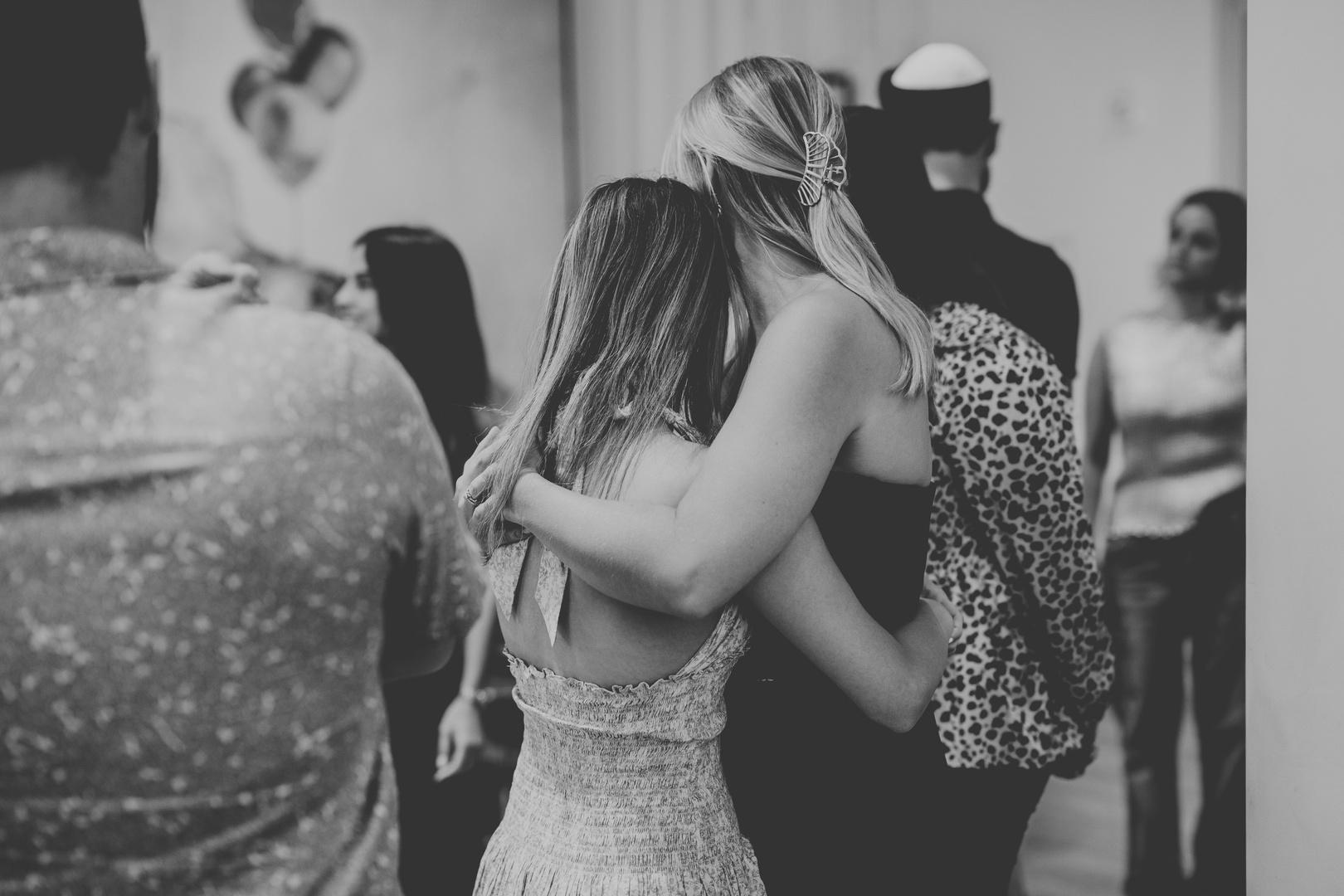
Wine
By entering a different reality
once a week, we are reminded that a different world is possible… Imagine resting in the fullness of what is rather than being consumed by the pain of what is not yet, and by the anxiety that it may never be. The challenge and the opportunity of Shabbat is to do just that once each week.
On Shabbat we don’t ask for anything because we already have everything we could possibly need.
Rabbi Shai Held Head
The ritual of Kiddush, literally sanctification is special about Shabbat? It is our most sacred time that offers us a taste of the world to come: when we won't want or need for anything, when the world's problems will be resolved If Shabbat is our opportunity to enact the world to come during this life, consider the moment of kiddush as an opportunity to travel to this forward-looking space and time.
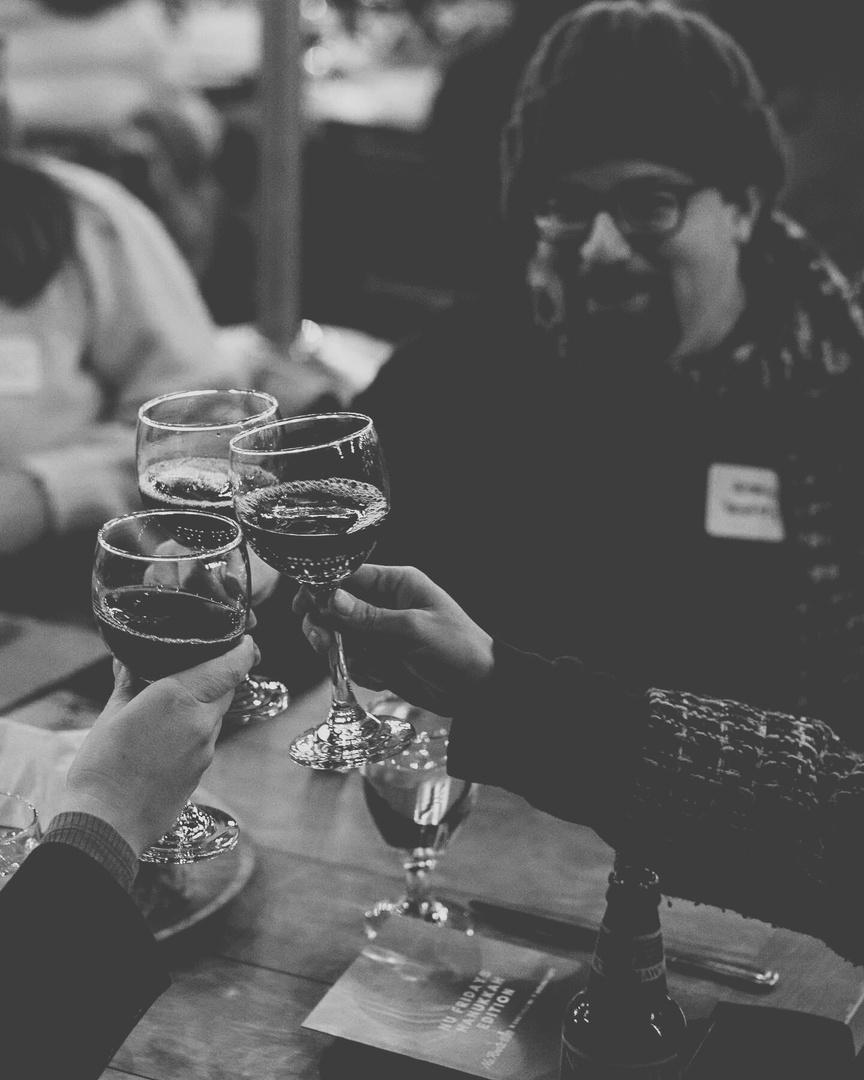
Hands
Kiddush can be a longer, collective prayer or something short and sweet. Which option will best suit your ability to utilize kiddush as an opportunity to travel between worlds. Will the opportunity to have your guests sing together transform the trip or will having someone lead you in a quick prayer get you there that much faster?
Baruch Atah Adonai Eloheinu Melech ha’olam borei p’ri ha’gafen.
Baruch Atah Adonai m’kadesh ha’Shabbat.
Blessed is the Oneness that creates the fruit of the vine. Blessed is the Oneness that sanctifies Shabbat.
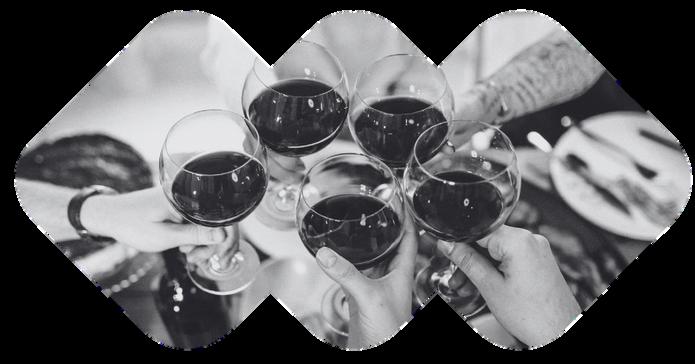
Heart


There is little consensus among Jewish sages and scholars about what the world to come will look, feel, or be like – if you were building the world to come, what would you create?
How might you create just a slice of this world at your Shabbat table?
ןפגה ירפ ארוב םלועה ךלמ וניהלא יי התא ךורב
שדקמ יי התא ךורב
תבשה
Bread
“If I am not for me, who will be for me?
And when I am for myself alone, what am I?”
Rabbi Hillel in Pirkei Avot 1:14
"Here is a vexing demand sometimes made of young Jews by their elders in America today. You should worry about the Jews more than you worry about non-Jews. […] There are so many challenges embedded in Judaism, but perhaps this is the greatest one of all: How do we balance our faith’s demand to care especially for our fellow Jews, and care especially for the entire world, at the same time?"
Jeffrey Goldberg in The New American Haggadah
Head
When read closely, the blessing over bread doesn’t really make sense. Bread isn’t just “brought forth from the earth ” So many different people have cleared the fields, planted, harvested, and milled. More sets of hands baked, packaged, and sold Untold numbers have touched our loaves before they reach our table. When we then touch the challah to bless it, we become another link in this chain of hu Jews have historically been in a unique position by being subjected to the push and pull of particularism and universalism, assimilation and tribalism, being for ourselves and being for the whole world. Regardless of this tension, we remain linked through our most basic needs, such as bread, to our broader and neighboring communities
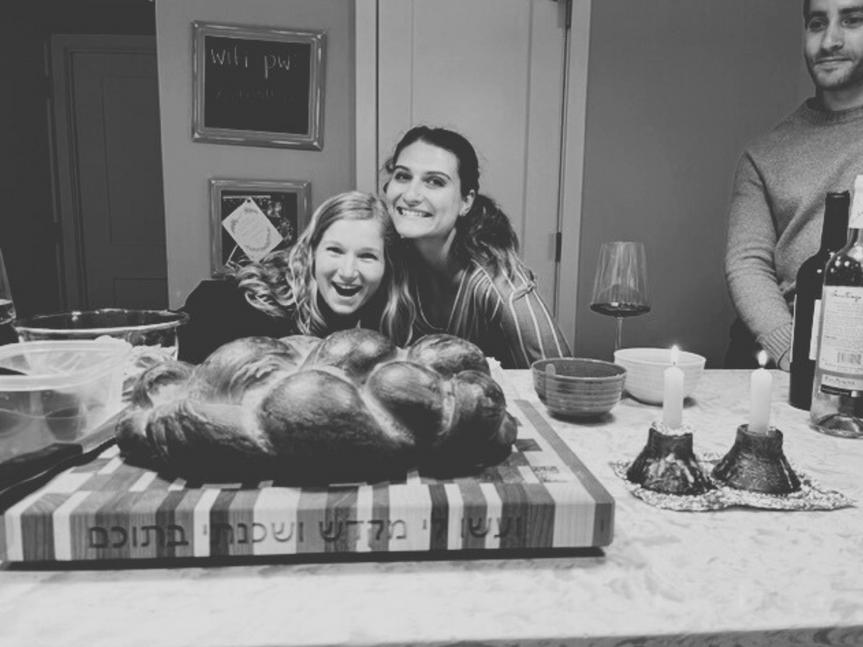
Hands
How can you utilize this incredibly simple prayer to lean into this moment of Jewish communal schism and take from it connectivity? Consider what it might mean to connect yourself not only to those at your table, but to those at every Shabbat table or even every dinner table when you touch the challah to bless it. How can you encourage this connection for both yourself and your guests?
יצומה םלועה ךלמ וניהלא יי התא ךורב ץראה ןמ םחל
Baruch Atah Adonai Eloheinu melech ha’olam ha’motzi lechem min ha’aretz. Blessed is the Oneness that brings forth bread from the earth.


Is it meaningful for you to be part of a worldwide Jewish community?
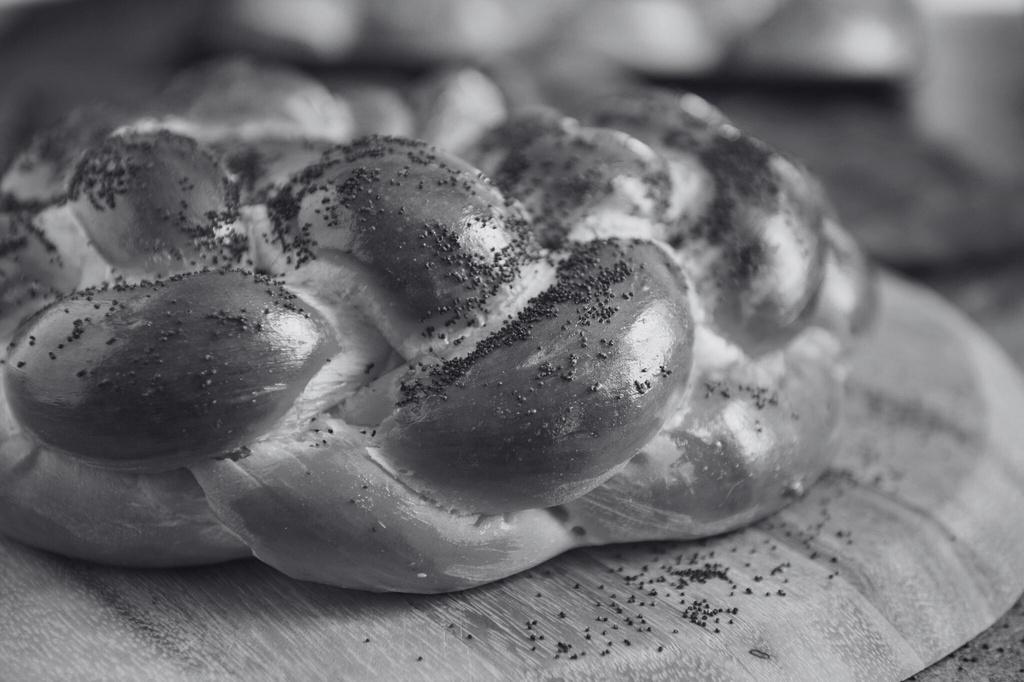
How do your values inform the way you see yourself as interconnected to your local community, your Jewish community, a broader community?
Gratitude
“The Sages taught: One reroutes a funeral procession to give way to a wedding procession."
Babylonian Talmud Ketubot 17a:9
Head
Despite times being difficult and tr room in the Jewish tradition for joy one of Judaism's most sacred act is held temporarily for the joyful ex wedding procession Our Jewish te that gratitude is an essential piece full life, and Judaism ha ways and opportunities gratitude for each and e
Hands
The traditional Birkat Ha after the meal) is a call-a prayer with a leader As your Shabbat dinner, co sort of call and respons engage your guests in Y an opportunity for peopl word or moment of grat spirit of the Birkat, cons your guests what makes whole at this moment.
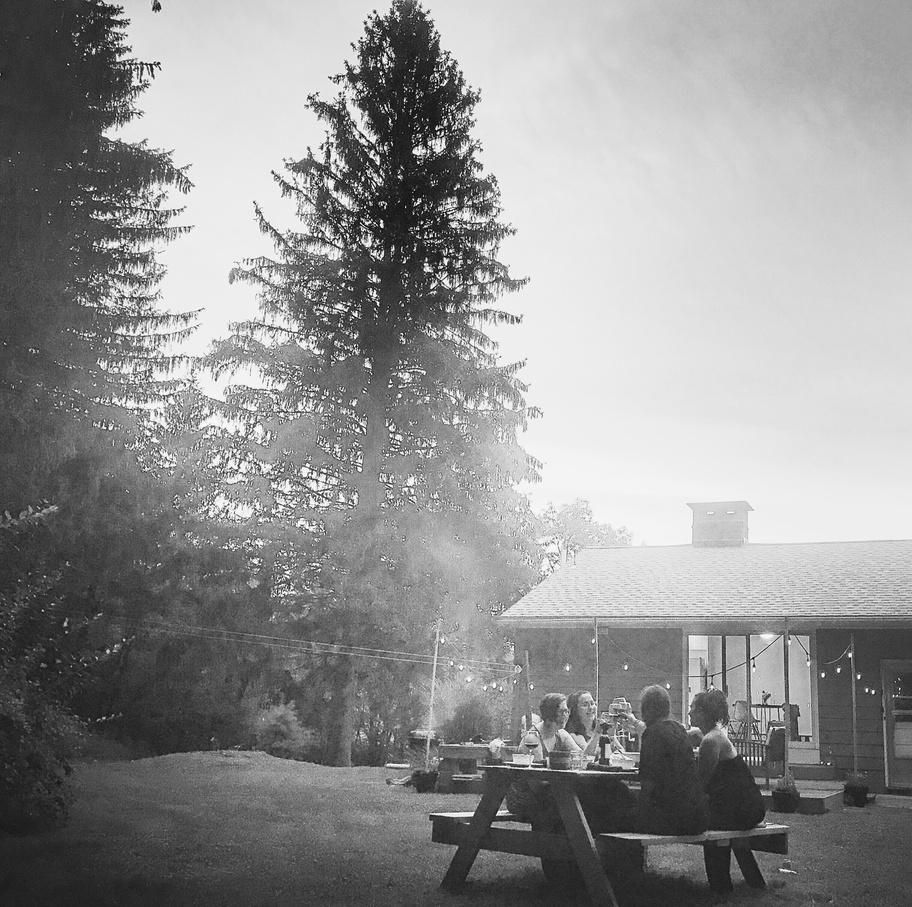

May the So Who blesse Help us fin
To make o Debbie F
Heart


The very act of counting the good things in your life makes them more easily come to mind. What makes you stop, take a moment to catch your breath and recognize the blessings in your life?


What might it mean for you to make your life a blessing?
We have inherited so many traditions and practices from our ancestors, who or what inspires you to continue a Shabbat practice?















